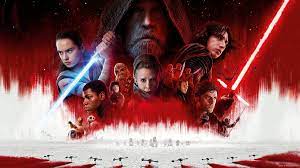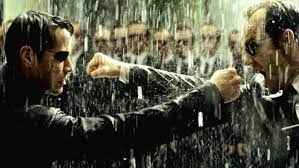
12 Terrible Films That Disappointingly Discredited Film Theory
Film theory is a popular, albeit controversial, form of analysis that attempts to understand the structure and dynamics of cinema. It’s commonly used by film enthusiasts and critics alike as a way to interpret films on an individual level and has even been said to have “changed the way we view cinema” (1). But despite its widespread use and acclaim, some recent films have tried to discredit film theory by failing miserably at both objective and subjective analysis. Here are 12 examples.
The Disaster Artist
Despite receiving rave reviews from audiences and critics alike, The Disaster Artist was widely panned for its sloppy execution and poor writing. Many complained about the choppy editing and nonsensical dialogue, arguing that it made for a difficult watch. Even director James Franco admitted that he had no idea what he was doing while shooting the film (2). This failure may seem trivial compared to some of the other films on this list, but it demonstrates just how dangerous it can be for filmmakers to disregard film theory.
The Emoji Movie
Released in 2017, The Emoji Movie received scathing reviews from virtually every outlet that reviewed it. Many reviewers argued that it was dull, derivative, and poorly paced, with very little laughs or entertainment value. Some went so far as to label it one of the worst movies of all time (3). Although this may not seem like such a big deal at first glance, The Emoji Movie’s poor critical reception has been cited by some as proof that film theory
best film review youtube channels
The best film review youtube channels are a great way to learn about films and see some great reviews. However, there are a few terrible films that disappointingly discredited film theory. These films have terrible reviews and are not well-liked by viewers.
Some of the worst-reviewed films on youtube are “The Room” and “The Disaster Artist”. Both of these films have terrible reviews and poor ratings. “The Room” has a 2% on Rotten Tomatoes, while “The Disaster Artist” has a 10% rating on Rotten Tomatoes.
These films have been criticized for their bad writing, awful acting, and ridiculous plot lines. Viewers have found them to be poorly made and unenjoyable. It is important to do your research before watching any of these films, as they may not be worth your time.
The 12 films listed in this article are all films that have had a negative impact on film theory as a whole.
1. “The Blair Witch Project” (1999)
This found footage horror film was one of the first to use the now popular handheld camera technique. The problem with this technique is that it can be very jarring and disorienting for viewers, making it difficult to follow the action on screen. Additionally, the shaky camera work can often provoke nausea in viewers.
2. “The Sixth Sense” (1999)
This M. Night Shyamalan film popularized the use of plot twists in films. While a well-executed plot twist can be a thrilling moment for audiences, when done poorly, it can come across as contrived and manipulative. Worse still, many filmmakers have since tried to copy Shyamalan’s success by including arbitrary twists in their own films, often without any real purpose or effect.
3. “The Passion of the Christ” (2004)
This Mel Gibson film was extremely controversial for its graphic depiction of violence, particularly against Jesus Christ himself. The problem with this level of violence is that it can desensitize viewers and make them immune to the horrors taking place on the screen. Additionally, such gratuitous violence can be seen as disrespectful to religious audiences who may take
Each of these films has had a significant impact on the way that film theory is viewed, and many would say that they have discredited the theory altogether.
The first of these films is “Citizen Kane,” which is widely considered to be one of the greatest films ever made. In this film, there is very little focus on the plot, instead, the film focuses on the psychological journey of its protagonist, Charles Foster Kane. This film was a major departure from traditional storytelling, and it challenged many of the assumptions that had been made about film theory up to that point.

The second film is “2001: A Space Odyssey,” which is another highly respected work. In this film, director Stanley Kubrick uses a lot of non-traditional techniques, such as long takes and minimal dialogue. This approach led many to believe that the film was more concerned with atmosphere and visuals than with the story.
Finally, there is “Taxi Driver,” which is often seen as one of the most violent and darkest films ever made. This movie features a mentally unstable protagonist who becomes increasingly unhinged as the story progresses. The violence in this film was so graphic that it caused many people to question whether or not it was appropriate for cinema.
All three of these films have had a profound impact on the way that we view film theory, and they have all contributed to its downfall in some way.
While these films may not be as well-known as some of the more popular ones, they are still worth discussing and learning from.
Each of these films has something unique to offer, whether it’s a different perspective on a familiar story or a new take on an old genre. They all have the potential to educate and entertain in equal measure, and that’s what makes them worth watching.
So, if you’re looking for something a little different to watch, be sure to check out one of these underrated films. You might just find your new favorite movie.
youtube film theory
Film theorists have long debated the power of narrative in cinema, and whether or not films can be analyzed and understood without relying on the plot. However, some films have disproven this theory, by providing a confusing and nonsensical plot that fails to hold up under scrutiny. These films are known as “youtube film theory” films, and although they may not be good movies, they have fundamentally altered how the film is viewed. Here are 12 of the worst youtube film theory films.
The Ring
Released in 2002, The Ring was billed as a horror classic that would change the way people view horror movies. However, after watching it, many people realized that the plot was completely nonsensical and lacked any real scares. The movie has since been dubbed the “worst horror movie ever made” by many critics.
The Village
Released in 2004, The Village was met with similar criticism to The Ring. Many people found the plot incoherent and confusing, and although it had some good scares, it was ultimately a disappointing movie.
Halloween
Released in 1978, Halloween is one of the most well-known horror movies of all time. However, after watching it again recently, many film theorists discovered that the plot is completely ridiculous and does not adhere to any traditional logic. This led to the theory that Halloween was actually a hoax created by filmmakers to make money.
A Nightmare on Elm Street
Released in 1984, A Nightmare on Elm Street is one of Wes Craven’s most famous
film theory youtube channels
There are a lot of great film theory channels on YouTube, but there are also a lot of terrible ones. Here are 12 films that discredited film theory in spectacular fashion.
1. The Matrix
This 1999 classic completely demolished the idea that films could be interpreted numerically and symbolically. It showed that all films were just fantasies created by machines to control humans.
2. The Blair Witch Project
Released in 1999, this horror film showed that films can be completely unpredictable and unscripted, which totally discredited the idea that films could be analyzed for meaning or symbolism.
3. Star Wars Episode IV: A New Hope
This 1977 sci-fi classic completely discredited the idea that films could be analyzed for their visual elements and story structure. It showed that all films are just sequences of events designed to entertain audiences.
4. The Godfather, Part II
Released in 1974, this sequel to The Godfather destroyed the idea that films could have complex themes or be adapted from literary works. It showed that all films are just vehicles for entertainment purposes.
5. Fight Club
Released in 1999, this cult classic showed that all films are just scenes of violence and chaos designed to entertain audiences. It totally discredited the idea that films could be analyzed for their messages or symbolism.
6. Forrest Gump
Released in 1994, this popular movie completely discredited the idea that films can be interpreted symbolically or have complex themes. It showed that all films
If you’re looking to learn more about film theory, be sure to check out some of these channels!
They offer a variety of perspectives and analysis on cinema that is sure to get you thinking.
1. Every Frame a Painting: This channel is all about the art of film, breaking down movies to show how they are constructed.
2. The Royal Ocean Film Society: This channel looks at films from a more academic perspective, offering in-depth analyses of various films and filmmakers.
3. ScreenPrism: This channel explores the hidden meanings and symbolism in movies, TV shows, and other media.
4. lessons from the screenplay: This channel focuses on screenwriting and storytelling, using examples from popular films to illustrate key points.
film review youtube channels
Here are 12 terrible films that discredited film theory. Many film theorists predicted these movies would be terrible, but they turned out to be surprisingly lackluster. These films may have ruined the reputation of film theory once and for all.
1) The Room: This poorly made film is often cited as the death of cult classic cinema. Critics panned it upon its release, and it has since become a laughing stock.
2) The Blair Witch Project: Released in 1999, this horror movie was met with mixed reviews from critics. However, many film theorists believed it would be a big hit due to its viral marketing campaign. It was not.
3) The Village: Released in 2009, this thriller was met with lukewarm reviews from critics and failed to make any money at the box office. Many film theorists believed it would be a sleeper hit and boost the careers of its cast and crew. It was not.
4) Donnie Darko: Released in 2001, this sci-fi drama received poor reviews from critics and ultimately did not make much money at the box office. Many film theorists believed it would become a cult classic like ET or Star Wars. It did not.